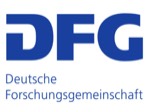DFG Research Grant for PD Dr. Moritz Schmelzle

Acute on chronic liver failure (ACLF) is defined as an acute hepatic insult in patients with chronic liver disease and is characterized by high death rates. Systemic inflammation is considered a hallmark of ACLF and can be linked to progression of liver failure and clinical deterioration. Criteria for ACLF and the systemic inflammatory response syndrome (SIRS) substantially overlap and support the assumption of mechanistic similarities between both syndromes. Thus, modulating inflammation and the linked immune responses in ACLF might help to restore homeostasis and improve of regenerative capacities of the injured liver.We hypothesize that the catalyzed hydrolysis of purinergic damage-associated molecular patterns (DAMPS), such as extracellular ATP, by the ectonucleotidase CD39 is crucially involved in the regulation of innate immune responses and the modulation of exacerbated sterile inflammation in ACLF. We here aim to describe characteristics and functions of monocyte subsets in ACLF and to investigate implications of purinergic signaling. We further plan to investigate the therapeutical relevance of non-classical monocytes and the immune-type ectonucleotidase CD39 in experimental ACLF. Finally, we will evaluate the clinical significance of cellular and non-cellular immune responses in ACLF patients enrolled in the GRAFT Trial.

